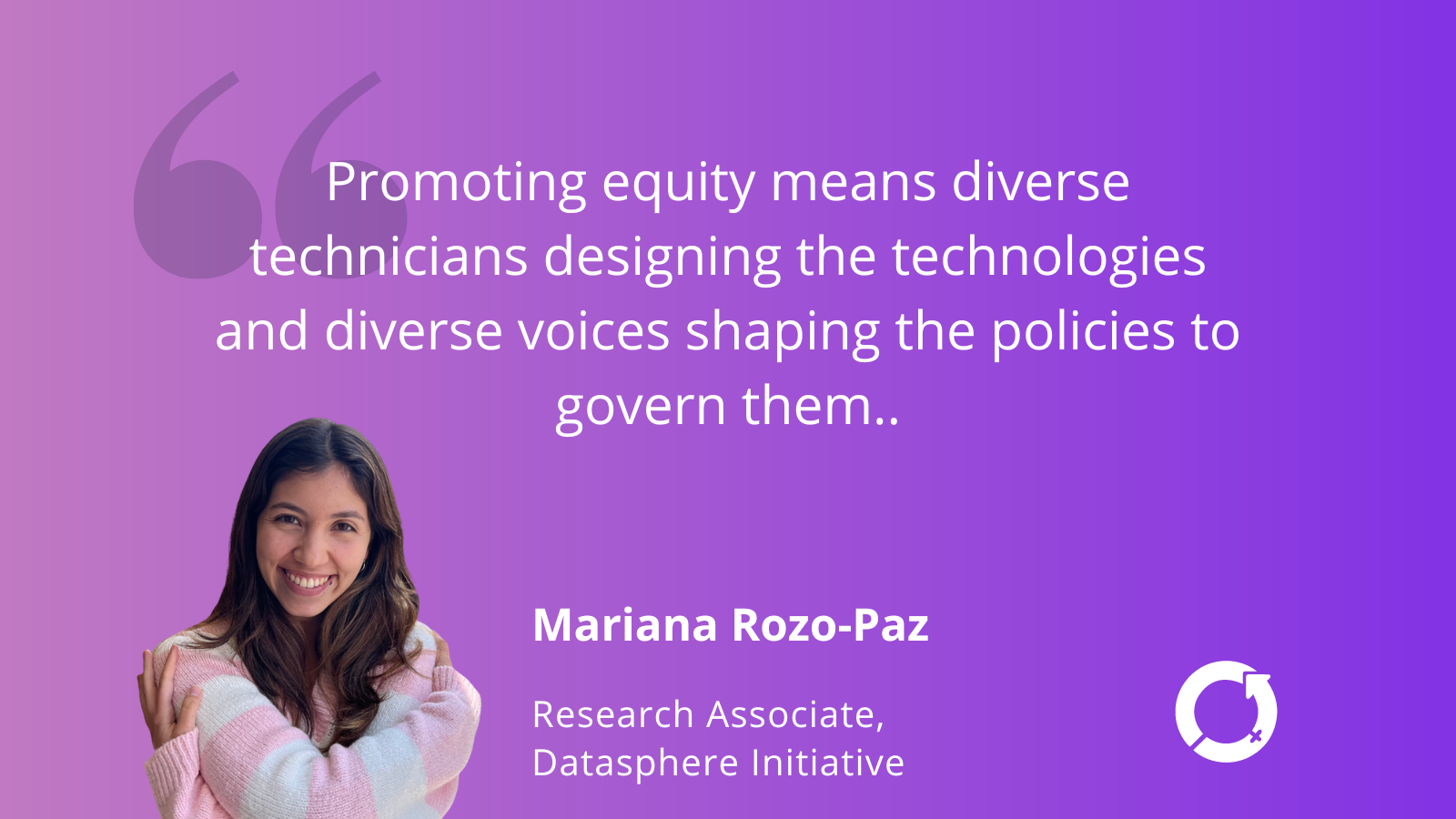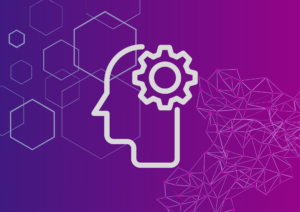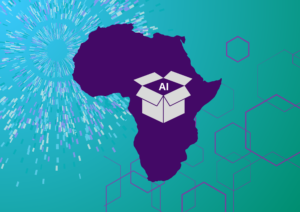On the occasion of International Women’s Day and its 2023 theme #EmbraceEquity, the Datasphere Initiative spoke to a range of policy professionals in the Datasphere Initiative’s global network, to ask them: why equity should be a core goal in policy and technical approaches to responsibly unlocking the value of data?
Mariana Rozo-Paz, Research Associate, Datasphere Initiative shared her perspectives and identified specific actions that can be taken.
Read more about the campaign and other contributions here
Data currently underpins the majority of socio-economic and political decisions, and its benefits are innumerous. Equity in the data economy points to the need to distribute the benefits derived from data. This is what we aim for when advocating for equity in data policy and technologies: that the value of data is unlocked for all, not just for a few. In practice, striving for equity means that all voices are heard – especially those from underrepresented communities – in the processes of designing data-driven technologies and defining the policies that will govern them. Specific communities are being impacted differently by the data economy, which is why understanding their needs and the challenges they face is key to developing inclusive solutions. Promoting equity means diverse technicians designing the technologies and diverse voices shaping the policies to govern them. Equity is the only way to effectively unlock the value of data for all.
At Harvard’s Berkman Klein Center Fall 2022 research sprint, we just developed a framework to assess inclusivity in digital identity systems, which implies that diverse communities and perspectives are incorporated at the awareness, access, and integration levels. What is exciting about this framework is that it could be used in other settings (e.g., the data economy) to enhance inclusion at the technical and policy levels. I am also currently co-founding the Girls in Tech initiative in Colombia, where we seek to include young women and girls in tech discussions to effectively build a more equitable data economy.
Mariana is a Research Associate at the Datasphere Initiative. She is a lawyer and public policy professional – graduated with Summa Cum Laude – with minors in International Studies and Political Science from Universidad de los Andes in Colombia, and has studied AI and Digital Policy, Data for Policy, and International Law at Sciences Po, University of Chicago, and American University. For more than seven years, she has been working in pro-bono initiatives with youth, especially young women and girls, to raise their voices and co-empower them. She is co-founder of the “Girls in Tech” initiative in Colombia, a member of the WEF’s Global Shapers Community in the Bogotá Hub, President of Uniandes Women in Business, and Chief Legal Designer of the Global VYAP Network and COLVYAP.




